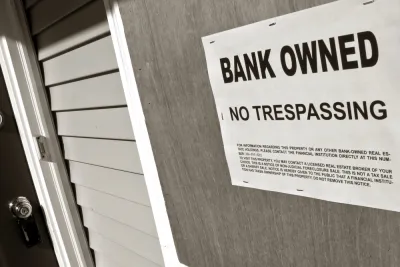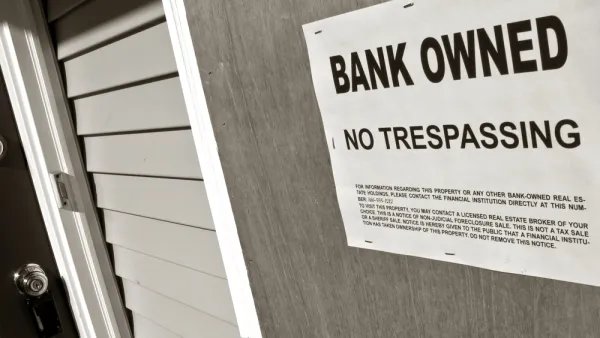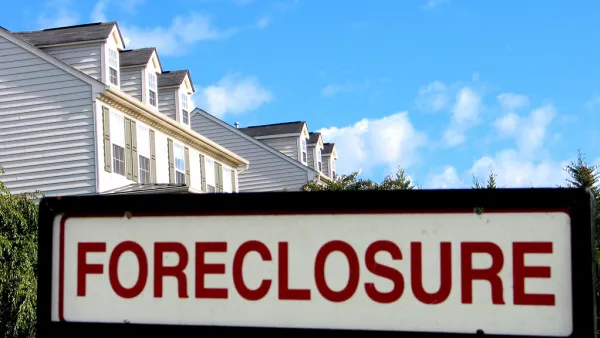According to a new study, richer borrowers drove the economy off the cliff in the housing crash of the Great Recession.

"Mounting evidence suggests that the notion that the 2007 crash happened because people with shoddy credit borrowed to buy houses they couldn’t afford is just plain wrong," writes Gwynn Guilford. "The latest comes in a new NBER working paper [pdf] arguing that it was wealthy or middle-class house-flipping speculators who blew up the bubble to cataclysmic proportions, and then wrecked local housing markets when they defaulted en masse."
"Analyzing a huge dataset of anonymous credit scores from Equifax, a credit reporting bureau, the economists—Stefania Albanesi of the University of Pittsburgh, the University of Geneva’s Giacomo De Giorgi, and Jaromir Nosal of Boston College—found that the biggest growth of mortgage debt during the housing boom came from those with credit scores in the middle and top of the credit score distribution—and that these borrowers accounted for a disproportionate share of defaults," according to Guilford.
(Note: this article relying on evidence supplied by anonymous data from Equifax was published several days before the news broke about hackers gaining access Equifax's records of confidential information pertaining to about 143 million Americans.)
According to this analysis, at least, the borrowing of those with low credit scores—the 'subprime' borrowers who supposedly caused the crisis—"stayed virtually constant throughout the boom."
As Guilford hinted at the top of the article, there is another study by Antoinette Schoar, a finance professor at MIT Sloan, that also backs the emerging narrative about how wealthier market players, with better credit, drove the rise in delinquencies in the market at the time of the crash.
FULL STORY: House flippers triggered the US housing market crash, not poor subprime borrowers

Analysis: Cybertruck Fatality Rate Far Exceeds That of Ford Pinto
The Tesla Cybertruck was recalled seven times last year.

National Parks Layoffs Will Cause Communities to Lose Billions
Thousands of essential park workers were laid off this week, just before the busy spring break season.

Retro-silient?: America’s First “Eco-burb,” The Woodlands Turns 50
A master-planned community north of Houston offers lessons on green infrastructure and resilient design, but falls short of its founder’s lofty affordability and walkability goals.

Test News Post 1
This is a summary

Analysis: Cybertruck Fatality Rate Far Exceeds That of Ford Pinto
The Tesla Cybertruck was recalled seven times last year.

Test News Headline 46
Test for the image on the front page.
Urban Design for Planners 1: Software Tools
This six-course series explores essential urban design concepts using open source software and equips planners with the tools they need to participate fully in the urban design process.
Planning for Universal Design
Learn the tools for implementing Universal Design in planning regulations.
EMC Planning Group, Inc.
Planetizen
Planetizen
Mpact (formerly Rail~Volution)
Great Falls Development Authority, Inc.
HUDs Office of Policy Development and Research
NYU Wagner Graduate School of Public Service




























